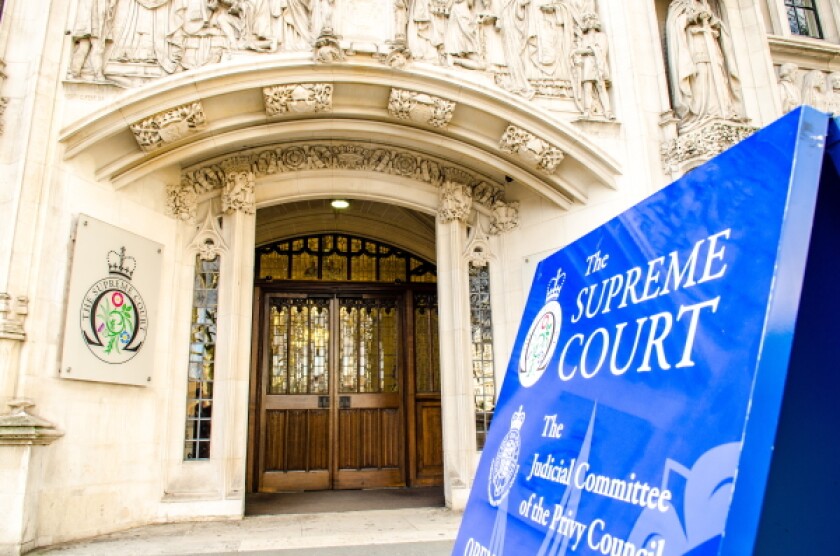Nokia defeats Daimler in SEP ‘holy war’ with German injunction
The court referred to Daimler as an ‘unwilling licensee’ in its ruling, meaning that it considered Daimler’s unwillingness to be evident in its general licensing conduct. This part of the decision could affect other lawsuits involving Daimler across Germany, and perhaps elsewhere.
With so much now at stake for Daimler, in-house sources tell Managing IP that they are baffled by the behaviour of the car maker, which some say appears to be engaged in a standard essential patent (SEP) licensing ‘holy war’.
“It is as if Daimler is marching their suppliers into a holy war, insisting on component level licensing,” says Eeva Hakoranta, chief licensing officer at InterDigital in Finland and former head of IP at Nokia. “Several alternative options are available but it seems like the people who are handling this by Daimler and Continental don’t want to see, or refuse to see, any other way than the one they insist on.”
Read more here.
Other Managing IP stories from the week that you might like to read include:
ARIPO interview: how IP rights can boost Africa’s innovation prowess
Start-ups should balance costs but beware of trademark neglect
ITC helps brands crack down on counterfeits, but is underused
UK Supreme Court to rule on Unwired Planet case next week
The court will hand down the ruling at 9.45am (BST) by video link because of the ongoing COVID shutdown, which can be viewed on the court’s website, and will not allow members of the public to watch the hand down in person in the Supreme Court building.
The decision will cover whether English courts have the power or jurisdiction to grant an injunction on a party that is infringing a UK SEP unless the defendant enters into a global licence under a multinational patent portfolio, and to determine the rates for that licence.
If the court answers that question in the affirmative, its ruling will also cover whether England is the proper forum for this particular claim.
The matter was appealed by Huawei to the Supreme Court after the England and Wales Court of Appeal upheld the first instance judgment on Unwired Planet v Huawei, in a ruling that, if upheld, will have profound implications for the telecommunications sector and other industries investing in connected technologies.
The appeal court agreed with Mr Justice Birss (soon to be Lord Justice Birss) in his ruling from 2017 that FRAND obligations can be met if a standard essential patent owner offers a worldwide licence and that an implementer that refuses to take such a licence could be subject to an injunction to prevent further patent infringement.
Managing IP will publish its analysis of the pending Supreme Court decision next week.
USPTO releases new PTAB guidance on inter partes reviews
The guidance focused on clearing up the confusion around IPR institutions, specifically those on the basis of prior art consisting of patents or printed publications.
It has been released because different interpretations of when to limit applicant admitted prior art (AAPA) had caused confusion between different PTAB panels.
The guidance ultimately advises that one, or multiple, prior art patents or printed publications must be the basis of IPRs, and dictates that mere statements in the specification of the challenged patent do not qualify as grounds for an IPR.
The guidance essentially limits the use of AAPA, stating that admissions by the applicant in the specification of the challenged patent standing alone cannot be used as the basis for instituting an IPR, under either Section 102 or Section 103.
Grounds relying solely or primarily on AAPA are fairly rare, however, which means that the new guidance is unlikely to make a substantial difference to the way most petitioners operate at the PTAB.
SCOTUS asked to review Stairway to Heaven copyright case
The petition was filed on August 6 and a response is due from the US’s highest court on September 10, 2020.
The case was launched in 2014 by the estate of late Spirit guitarist Randy Wolfe, better known as Randy California, whose trust - represented by lawyer Michael Skidmore - sought to claim that Stairway co-writers Jimmy Page and Robert Plant had infringed on Spirit's 1968 track, Taurus.
In March, the Court of Appeals for the Ninth Circuit Court of Appeals decided to strike down the inverse ratio rule in a copyright case against Led Zeppelin.
"The [Ninth Circuit] opinion is a disaster for the creatives whose talent is often preyed upon," the Wolfe estate wrote the petition. "By the same token, it is a gift to the music industry and its attorneys - enthusiastically received - by a circuit whose own judge once observed: 'Our circuit is the most hostile to copyright owners of all the circuits’.”











